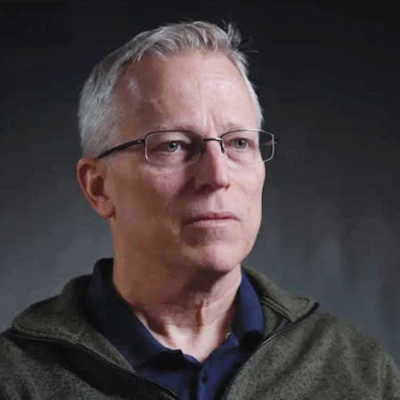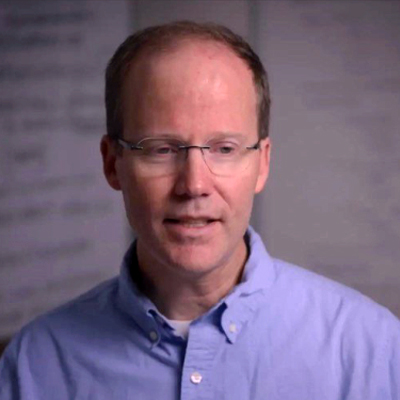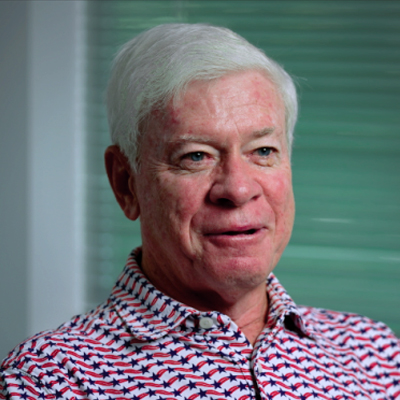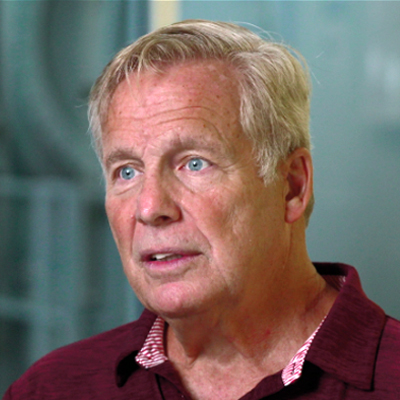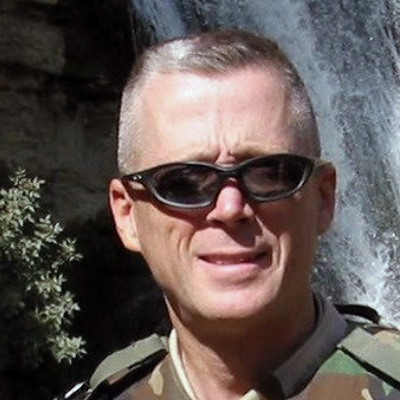SEE ALSO » Their Stories • More Stories from Veterans
Our expert specialists and consultants share their insights into PTSD…
Steve Cline
Former U.S. Army Master Sergeant, licensed marriage and family therapist as well as a certified clinical trauma professional
“Everyone has trauma, but not everyone is traumatized. … For example, if you’re in an accident, you step out of the car, you assess yourself, you assess the situation, and you’re like, ‘Well, that really stinks. But you know what? I’m okay, and I’m going to be okay.’ But because I don’t have your coping skills, I don’t have your resiliency, my brain never rests, and my brain never concludes that I am O.K. My brain loves to put things together and make sense of things, it will continue to operate behind the scene, and then will say, ‘Hey, Steve, when are you going to deal with this?’
“And so, an intrusive thought comes in. A nightmare happens. … So, my past is now messing with my present, which is going to screw up my future if I don’t deal with that.”
Dr. Warren Kinghorn
Psychiatrist and Theological Ethicist, Duke University Medical Center and Duke Divinity School
“We can think of a traumatic event as something that overwhelms those ordinary systems of care that give people a sense of control, connection, and meaning. And that could be something that evokes great fear. It could be a soldier who’s on a convoy and there’s an IED blast and there’s a lot of death and injury. It could, though, be something that evokes other kinds of emotions like shame or guilt. So a soldier or service member could participate in something in the context of combat that he or she feels shame or guilt. Or it could be intensely distressing grief, or it could be rage. It could be other kinds of emotions as well. And any of those, if they are aversive enough and difficult enough, can give rise to the avoidance and hypervigilance and mood and emotion and anxiety reactions that we associate with PTSD.”
Steve Rice
Advocate, Stop Soldier Suicide
“Stop Soldier Suicide offers counseling for free. It is confidential, which is critical for an active-duty soldier. The critical assets of Stop Soldier Suicide is it offers counseling over the phone, which means that they can talk to you anywhere in the world; there is no cost and it’s confidential. What Stop Soldier Suicide will tell you is that if they get engaged, they haven’t lost anyone”
Edward di Girolamo
Founder of Extivita and founder of H.B.O.T for Heroes
“The feedback we get from veterans that are doing 40 treatments is similar. Generally, they’re dealing with some inflammatory condition in the brain. And you heal that, we see a consistent improvement in their executive function, and we see overall improved health. Many of the veterans we see have lost faith that anything is going to help them with their PTSD. One of the other things you see is the ones that come in here with no hope at all, that they’ll get any relief from their condition. And hope returns.
Jeff Hicks
Retired U.S. Navy Commander
“Involvement in veterans’ organizations are good for many veterans because of the shared experiences. Only someone who has
experienced what we have been through can fully understand. I think that some veterans feel like their families get tired of hearing about
the war, but they can share freely with other veterans
